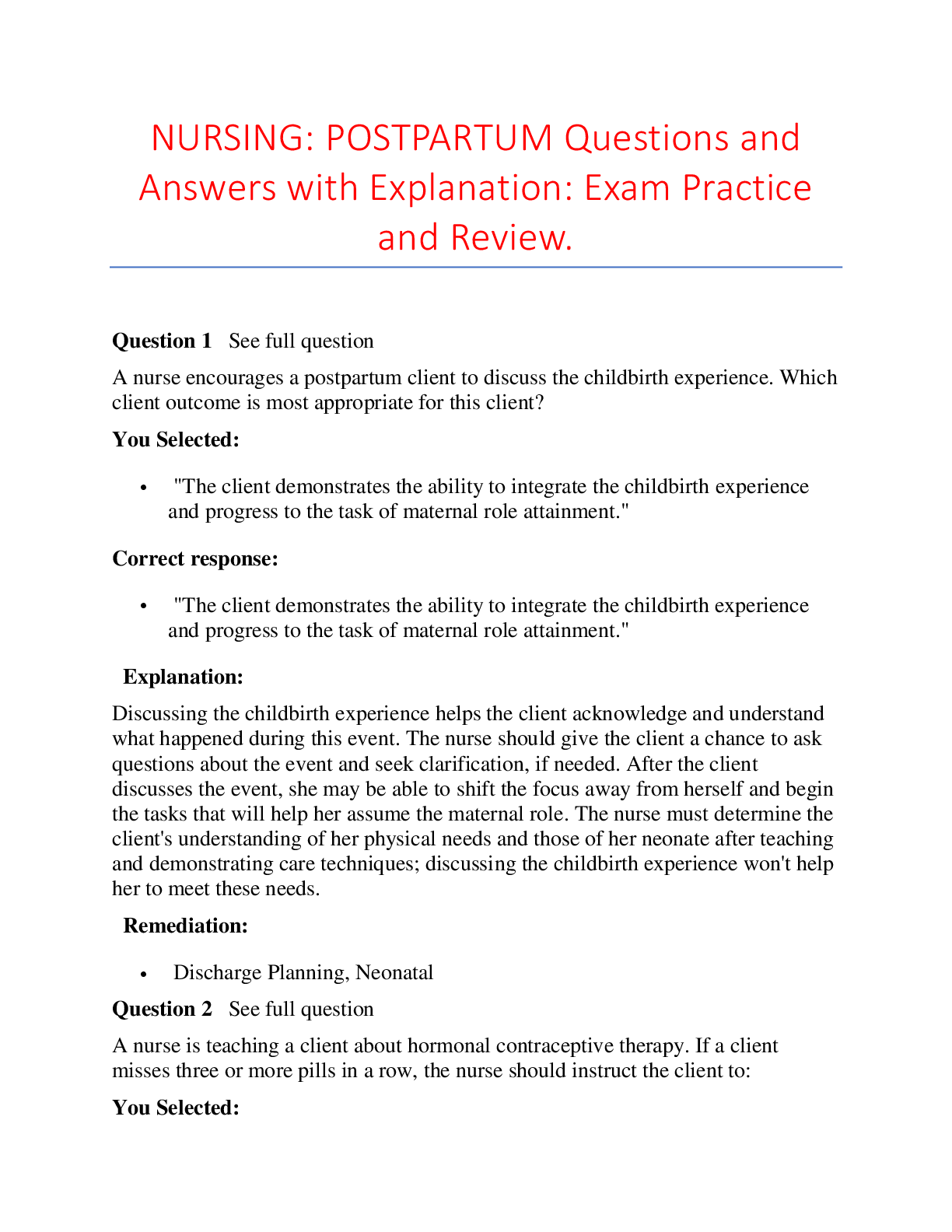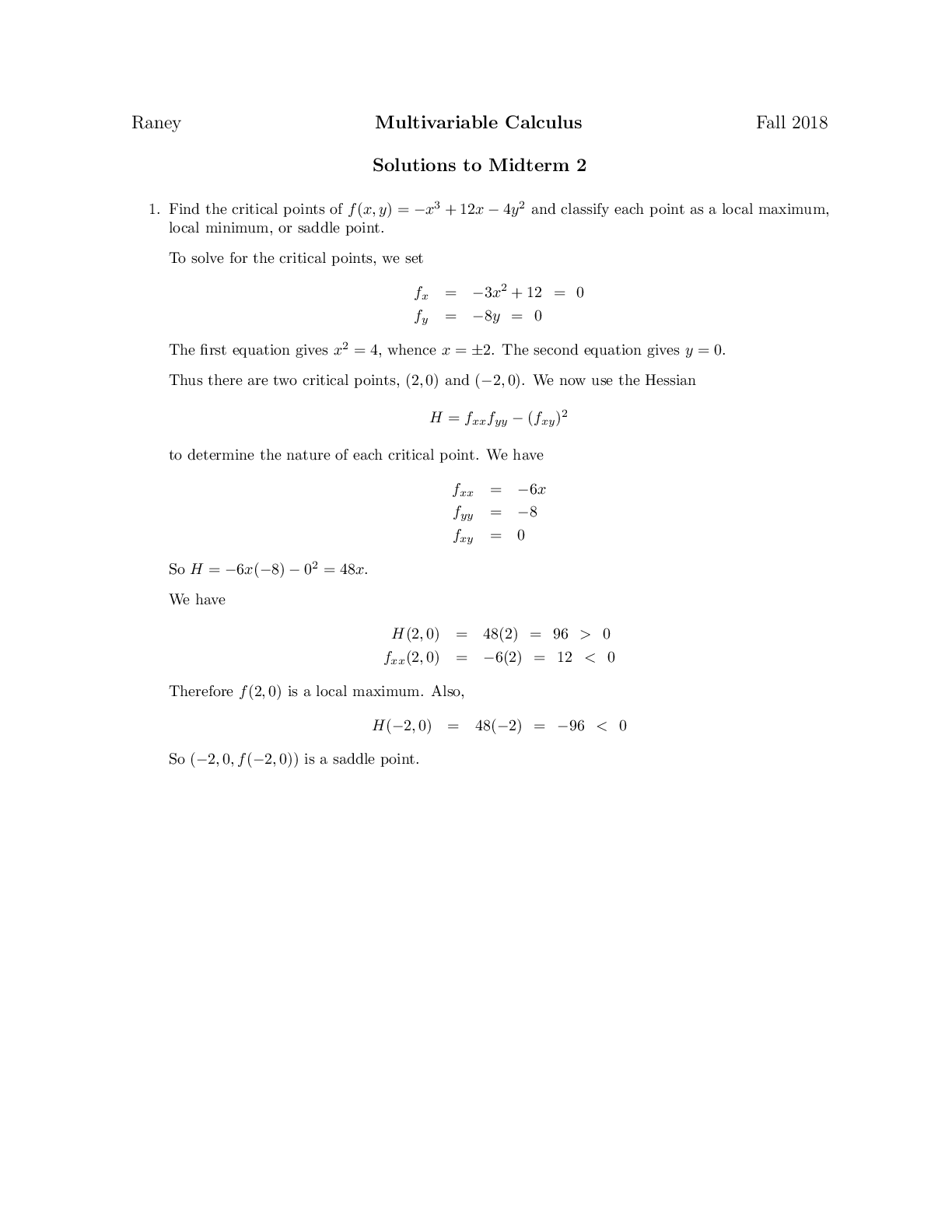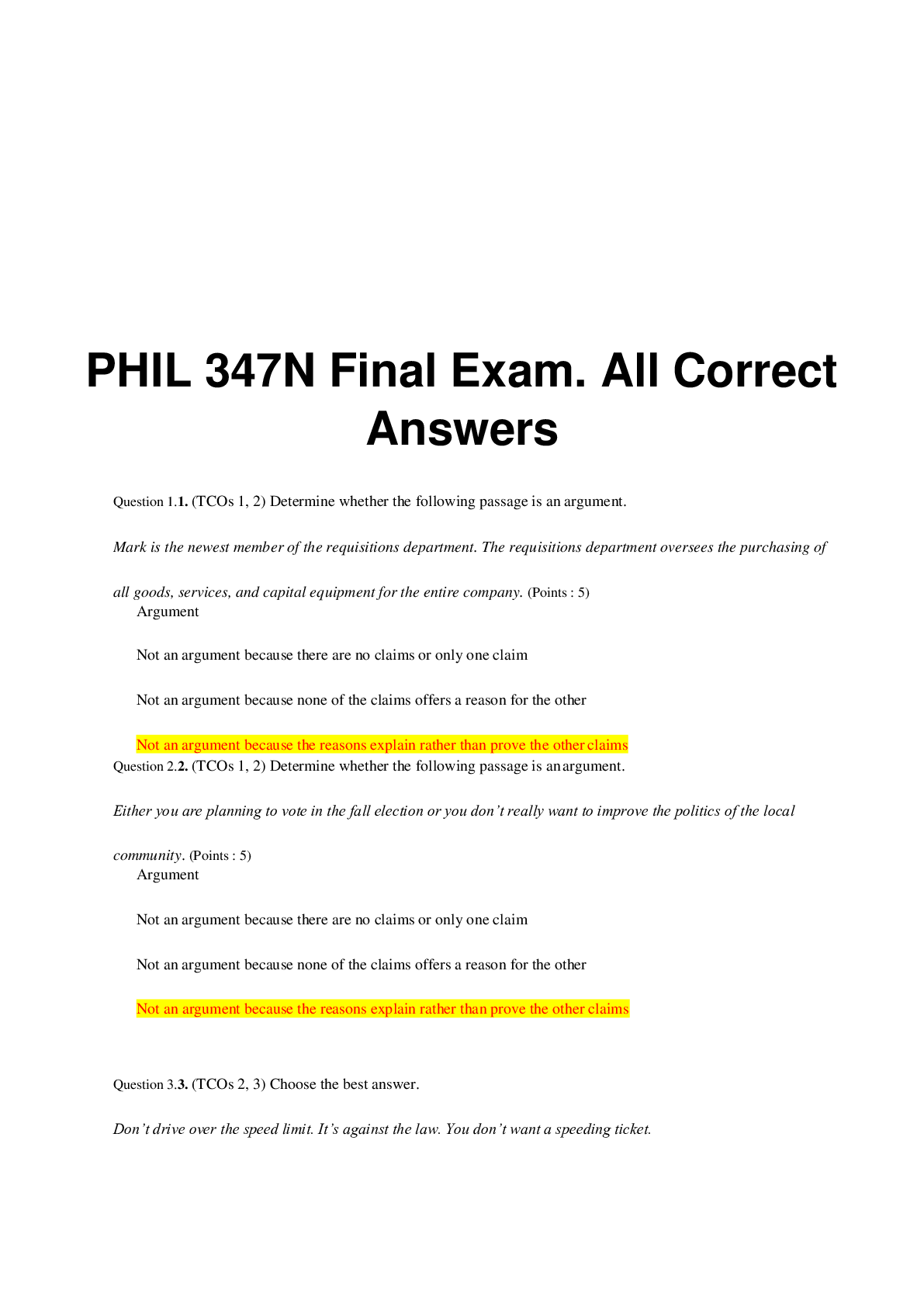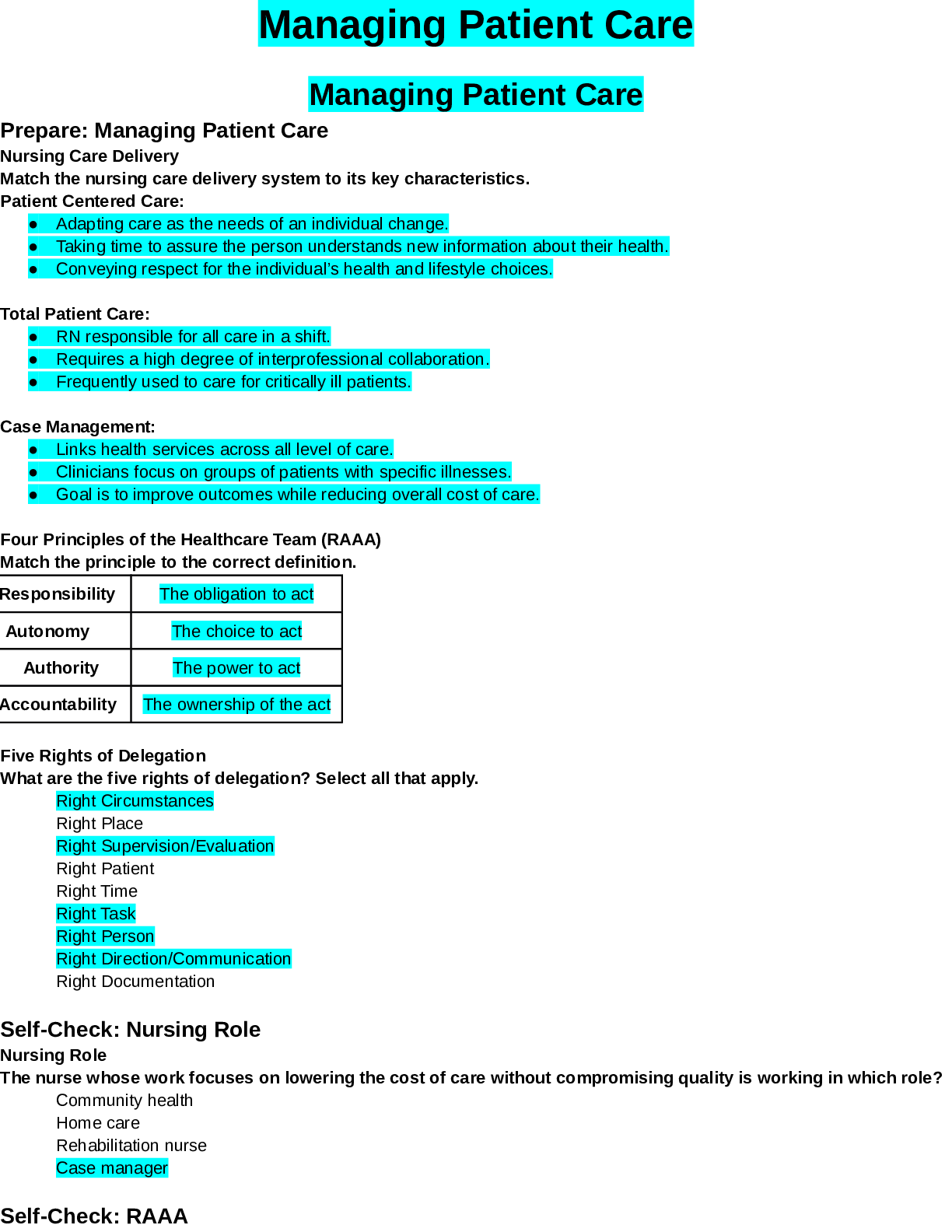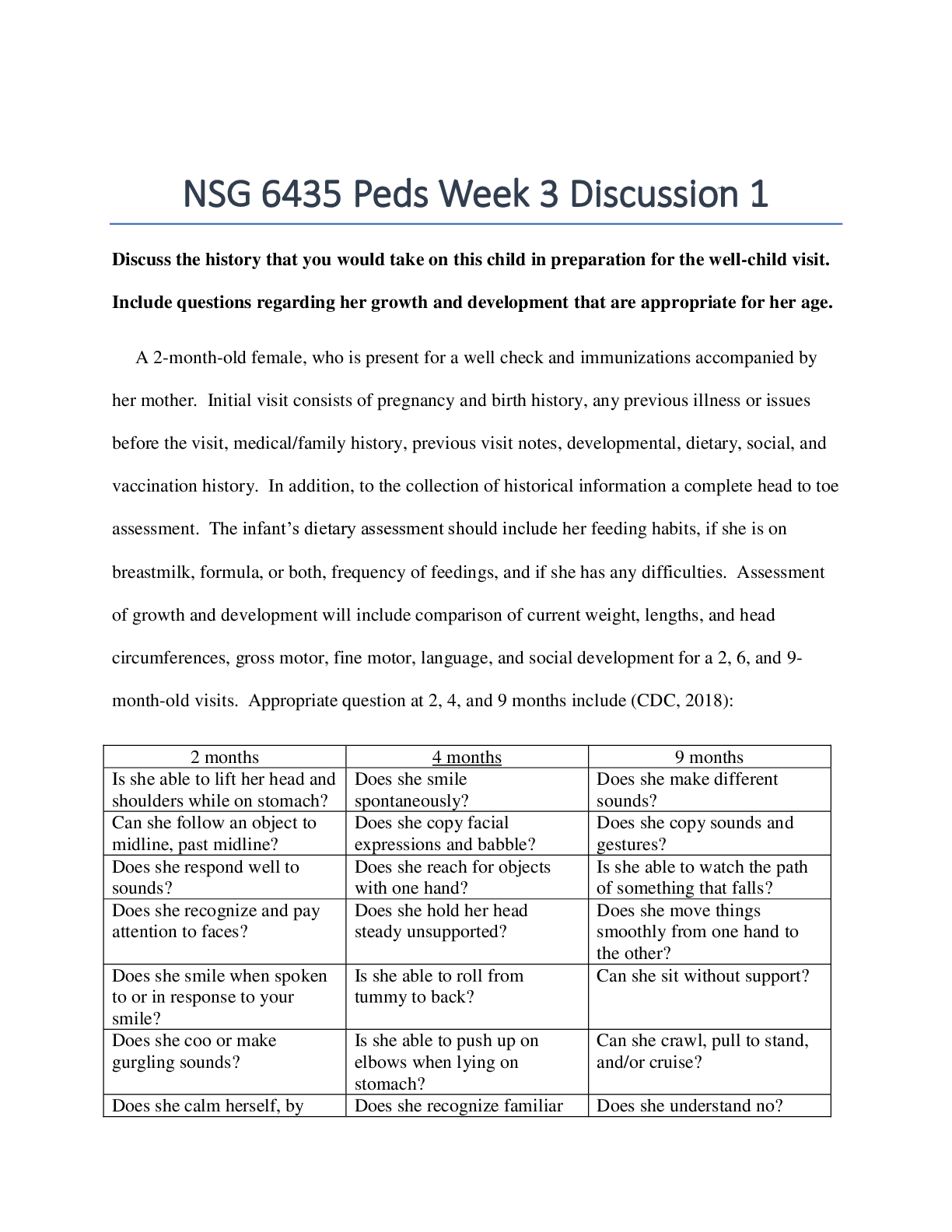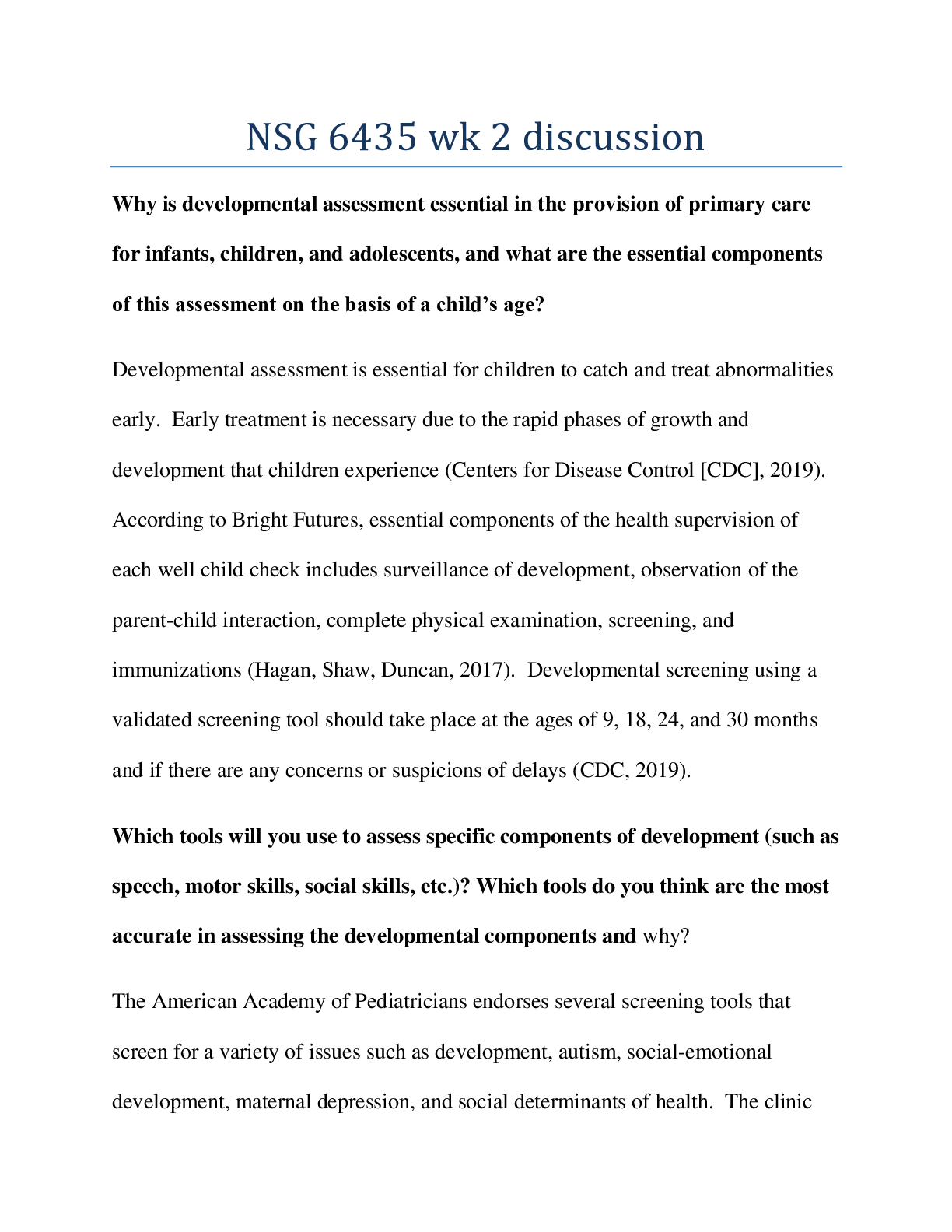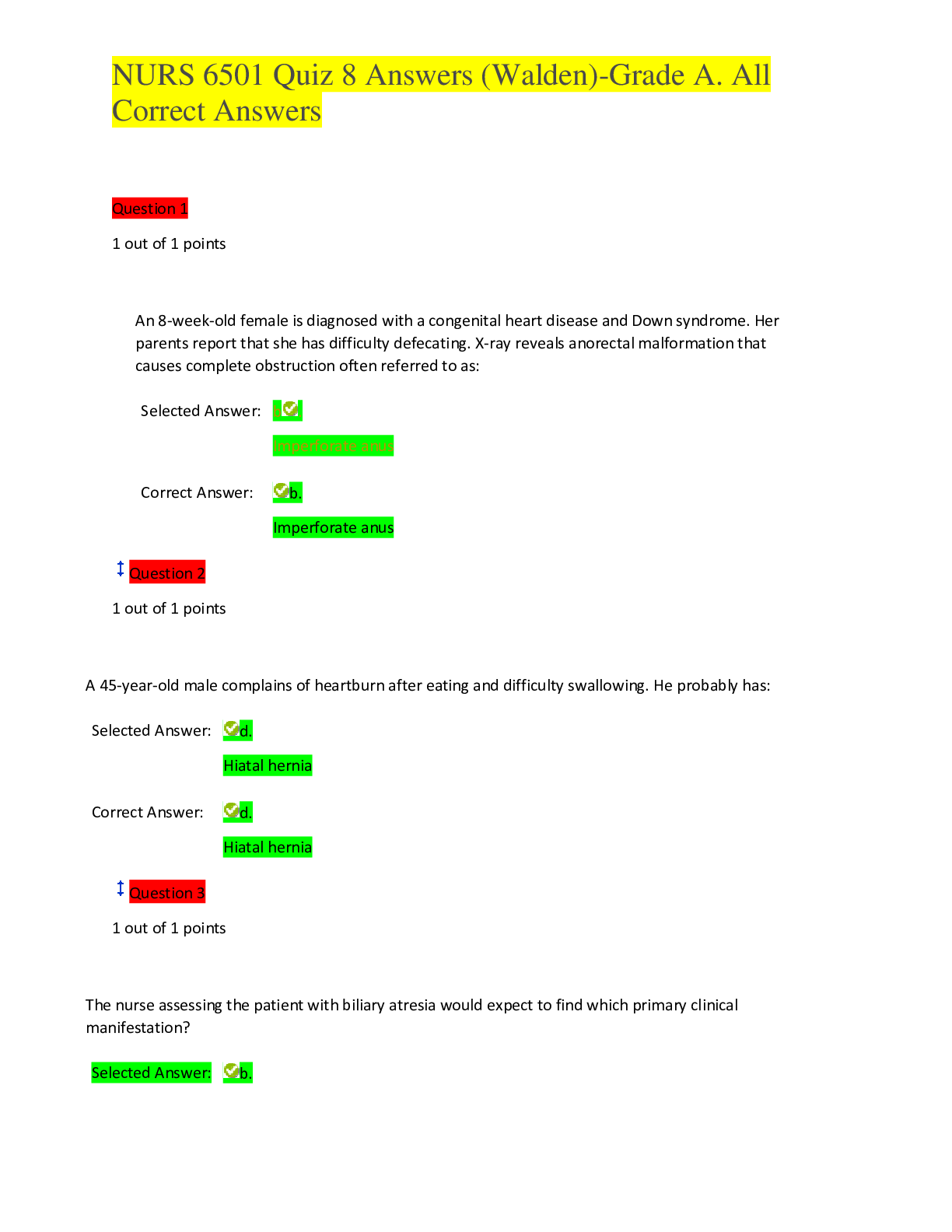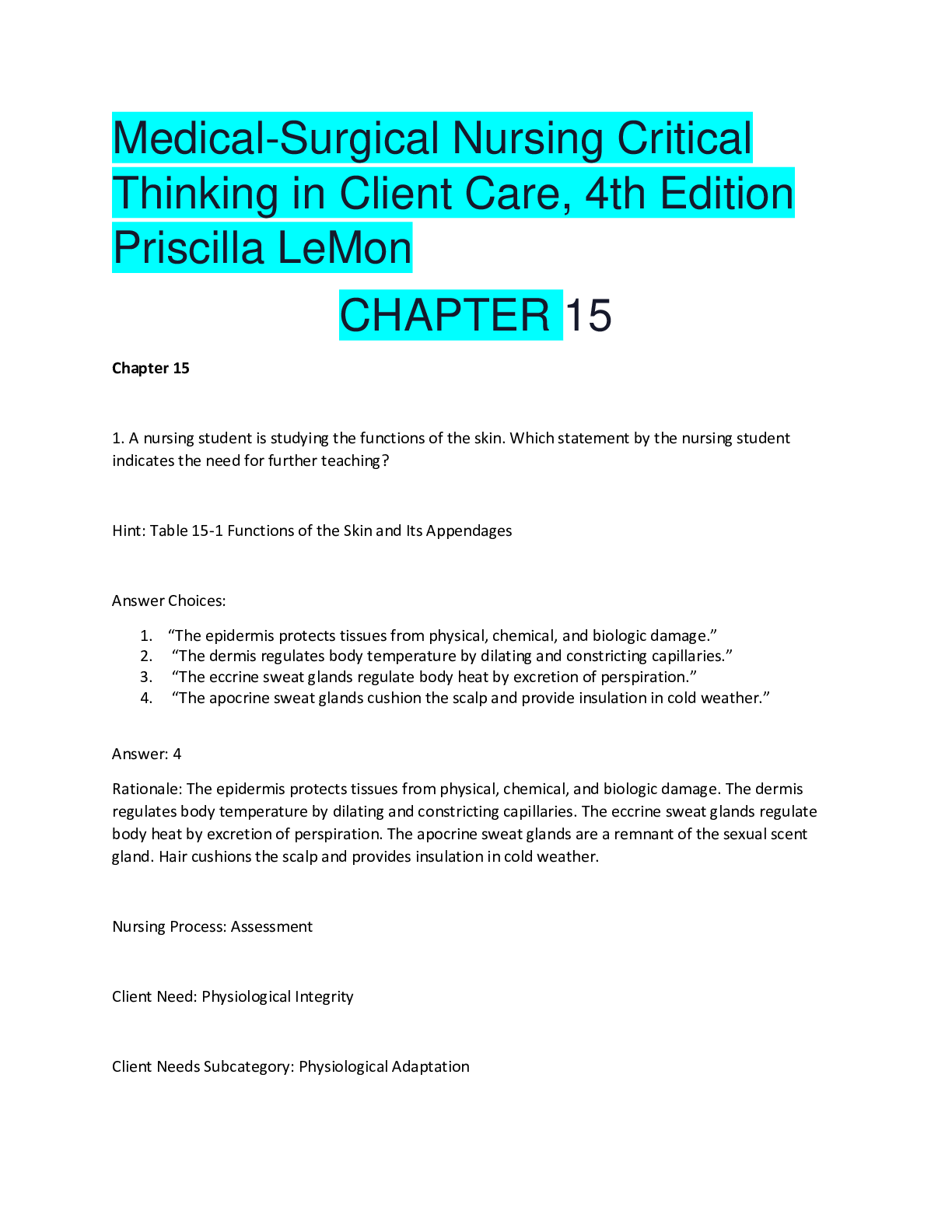Economics > QUESTIONS & ANSWERS > Pennsylvania State University - ECON 102 Quiz 06. All Correct answers Reviewed and indicated. 100% S (All)
Pennsylvania State University - ECON 102 Quiz 06. All Correct answers Reviewed and indicated. 100% Score.
Document Content and Description Below
The marginal cost of a worker in a competitive labor market is equal to A) the wage rate B) the marginal product of that worker C) the marginal revenue product of that worker D) the price of the f... inal output produced by that worker Feedback: The additional cost incurred from hiring one more worker is equal to the wage rate. Table for Individual Question Feedback Points Earned: 0.0/1.0 A 2. What could cause a firm’s demand for labor to shift to the right? A) a decrease in the marginal product of labor B) a decrease in the output price C) a decrease in the wage D) a technological improvement that shifts the production function upward Feedback: A firm’s demand for labor would increase if a technological improvement increased the marginal product of labor. Table for Individual Question Feedback Points Earned: 1.0/1.0 D 3. When a competitive firm hires labor up to the point where w = MRP of labor, this is equivalent to A) P = MC B) all of the above C) MB = MC D) MR = MC Feedback: Since MB (marginal benefit) is not defined in the notes or in the book, full credit is given for this question. Table for Individual Question Feedback Points Earned: 1.0/1.0 A https://www.coursehero.com/file/19062391/Quiz-6/ This study resource was shared via CourseHero.com4. Consider the table above. What is the price of the final good? A) $10 B) $4 C) $30 D) $1 Feedback: The MRP of labor is equal to the price of the final good multiplied by the MP of labor. Table for Individual Question Feedback Points Earned: 1.0/1.0 A 5. Consider the table above. A profit maximizing firm will continue to hire workers provided that the marginal revenue product of labor is equal to or greater than A) $5 B) $30 C) $10 D) $20 https://www.coursehero.com/file/19062391/Quiz-6/ This study resource was shared via CourseHero.comFeedback: The firm will hire workers up to the point where the wage equals the MRP of labor. Table for Individual Question Feedback Points Earned: 1.0/1.0 B 6. The marginal product of labor eventually slopes downward due to A) diminishing marginal utility B) diminishing marginal costs C) diminishing average returns D) the law of diminishing marginal productivity Feedback: The marginal product of labor eventually declines according to the law of diminishing marginal returns (productivity). Table for Individual Question Feedback Points Earned: 1.0/1.0 D 7. The labor supply curve shows the trade-off between A) wages and productivity B) leisure and work C) work and technology D) leisure and productivity Feedback: The labor – leisure trade off is shown on the labor supply curve. Table for Individual Question Feedback Points Earned: 1.0/1.0 B 8. When a landowner in a competitive market rents out his land, he is paid the A) marginal revenue product of the land B) marginal product of the land C) none of the above D) value of the total output produced by the land https://www.coursehero.com/file/19062391/Quiz-6/ This study resource was shared via CourseHero.comFeedback: Just as laborers are paid their MRP, landowners are paid the MRP of land. Table for Individual Question Feedback Points Earned: 1.0/1.0 A 9. When a firm is hiring capital, labor and land for its production process, the cost minimization condition is A) MPL = MPK = MPA B) all of the above are equivalent C) MPL/PL = MPK/PK=MPA/PA D) PL = PK=PA Feedback: The profit maximization condition for a firm using multiple inputs is MPL/PL = MPK/PK = MPA/PA. Table for Individual Question Feedback Points Earned: 1.0/1.0 C 10. When the price of a factor of production increases, firms that use that factor will A) increase output and reduce their demand for other inputs B) reduce output and increase their demand for other inputs C) reduce output and reduce their demand for other inputs D) increase output and increase their demand for other inputs Feedback: This is the output effect of a factor price increase. The demand for other inputs, however, can go up or down depending on the substitutability between factors of production. For instance, in an office, if secretaries can do the job of computers, then an increase in the price of computers would lead firms to hire more secretaries. On the other hand, if secretaries cannot work without computers, an increase in the price of computers will decrease demand for secretaries. Hence both answer choices starting with "reduce output" are correct. Table for Individual Question Feedback Points Earned: 1.0/1.0 C [Show More]
Last updated: 2 years ago
Preview 1 out of 4 pages

Buy this document to get the full access instantly
Instant Download Access after purchase
Buy NowInstant download
We Accept:

Reviews( 0 )
$9.00
Can't find what you want? Try our AI powered Search
Document information
Connected school, study & course
About the document
Uploaded On
Oct 04, 2020
Number of pages
4
Written in
Additional information
This document has been written for:
Uploaded
Oct 04, 2020
Downloads
0
Views
85

